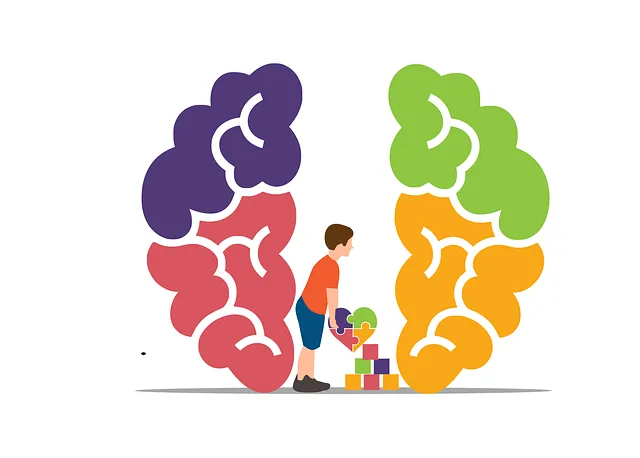The Arvada Kaiser Permanente Mental Health Access Center prioritizes cultural competency through comprehensive training programs that empower staff to provide empathetic, culturally sensitive care to a diverse community. They promote self-care routines and implement risk management strategies, fostering an inclusive environment and improving mental health services for all patients. The center continuously enhances its training through dynamic partnerships, policy analysis, and public awareness campaigns, ensuring evidence-based initiatives guided by data-driven insights.
“The Arvada Kaiser Permanente Mental Health Access Center recognizes the imperative need for cultural competency training among healthcare providers. This comprehensive guide explores how effective training can improve patient interactions and outcomes at the center. We delve into key components of culturally competent care, offering strategies tailored to enhance services. By implementing and evaluating these programs, the center strives for continuous improvement, ensuring a holistic approach to patient care that respects and values diverse cultural backgrounds.”
- Understanding Cultural Competency in Healthcare: A Need for Effective Training at Arvada Kaiser Permanente Mental Health Access Center
- Key Components of Cultural Competent Care: Strategies to Enhance Patient Interactions and Outcomes
- Implementing and Evaluating Training Programs: Continuous Improvement Approaches for the Center's Success
Understanding Cultural Competency in Healthcare: A Need for Effective Training at Arvada Kaiser Permanente Mental Health Access Center

Cultural competency is a vital aspect of healthcare that Arvada Kaiser Permanente Mental Health Access Center recognizes as essential to providing quality care. In today’s diverse society, mental health professionals must navigate complex cultural landscapes to offer effective and empathetic support. This involves understanding not only the unique needs of different ethnic, racial, and socioeconomic groups but also their specific beliefs, values, and communication styles.
At Arvada Kaiser Permanente, training programs focus on building resilience among staff while also implementing risk management planning for mental health professionals. These initiatives ensure that healthcare providers can offer culturally sensitive care, fostering a safe and inclusive environment. Additionally, self-care routine development is encouraged to promote better mental health, enabling professionals to provide their best services to the community they serve.
Key Components of Cultural Competent Care: Strategies to Enhance Patient Interactions and Outcomes

Cultural competency is a vital aspect of healthcare provision, especially in diverse communities like Arvada where organizations such as Kaiser Permanente’s Mental Health Access Center serve a wide range of patients. Key components include understanding and respecting patients’ cultural backgrounds, beliefs, and values, which significantly impact their health practices and perceptions. This involves actively listening to patients, asking about their preferences for care, and tailoring services to meet their unique needs.
To enhance patient interactions and outcomes, healthcare providers should incorporate strategies like emotional intelligence and crisis intervention guidance. Emotional intelligence enables caregivers to recognize and manage their emotions while understanding and empathizing with patients’ feelings. Crisis Intervention Guidance equips staff with skills to support individuals facing psychological crises, ensuring timely and effective help. Additionally, regular Stress Management Workshops can foster an environment that values self-care among providers, ultimately improving patient care through reduced stress levels and enhanced coping abilities.
Implementing and Evaluating Training Programs: Continuous Improvement Approaches for the Center's Success

Implementing and evaluating training programs is a dynamic process that drives continuous improvement at the Arvada Kaiser Permanente Mental Health Access Center. The center prioritizes regular updates to its educational initiatives, ensuring they remain relevant and impactful in addressing evolving mental healthcare needs. This involves collaborating with experts from diverse fields, including researchers, practitioners, and community representatives, to design evidence-based programs. By integrating insights from the Mental Health Policy Analysis and Advocacy and Public Awareness Campaigns Development, the center’s training becomes a powerful tool for fostering cultural sensitivity in mental healthcare practice.
Evaluation methods are integral to this process, providing data-driven insights into the effectiveness of each program. These assessments help identify areas of success and inform necessary adjustments, ensuring the training aligns with the latest research and community expectations. Through ongoing reflection and adaptation, the Arvada Kaiser Permanente Mental Health Access Center strives to enhance its services, ultimately improving access to quality mental health care for all.
Cultural competency training is not just a best practice; it’s a necessity at the Arvada Kaiser Permanente Mental Health Access Center. By equipping healthcare providers with the skills to navigate diverse patient backgrounds and preferences, the center ensures equitable care and improved outcomes for all individuals served. Through key components like awareness of unconscious biases, effective communication strategies, and cultural adaptation techniques, staff can foster an inclusive environment that respects and values every patient’s unique journey. Continuous improvement approaches, as demonstrated in successful training program implementations, are vital to maintaining and enhancing these efforts over time.






